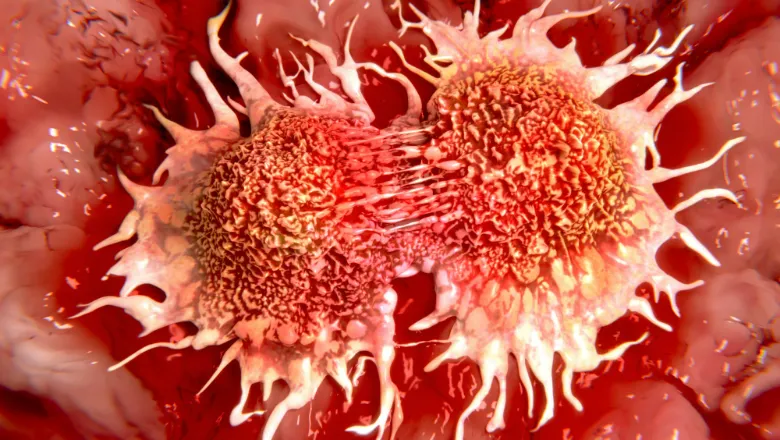We showed that increased activation of genes associated cDC1s and the NF-kB/IRF1 pathways are associated with improved prognosis in melanoma patients. This suggests these pathways could be important biomarkers for patient responses to immunotherapy as well as targets for the development of new therapies to activate cDC1s and enhance patient responses to therapy.”
Professor Toby Lawrence
12 July 2021
Scientists identify key molecular pathways controlling the anti-tumoral functions of immune cells
Conventional type 1 dendritic cells (cDC1s) require activation of two transcription factors, NF-kB and IRF1, in order to kickstart cytotoxic T cells into killing cancer cells, new research finds.

While immunotherapy has resulted in tremendous advances for cancer treatment, most patients still do not respond to the available therapies as well as doctors, scientists and they themselves would like.
Previous studies have shown that conventional type 1 dendritic cells (cDC1s) correlate with good prognosis and increased responses to immunotherapy in cancer patients, but it was still unclear what molecular pathways controlled their potential protective roles in cancer.
A new paper co-authored by Professor Toby Lawrence, published today in Science Immunology, reveals that cDC1s required activation of two transcription factors, NF-kB and IRF1, for their anti-tumoral functions and the recruitment and activation of tumour-specific cytotoxic T cells.
For this project, Professor Lawrence and his team set about dissecting the molecular pathways controlling the functions of cDC1s by using single cell RNA sequencing in mouse models of melanoma. Researchers employed single cell transcriptomics to map the molecular changes in cDC1s during tumour growth in mice, allowing them to determine the mechanisms that regulate the cells’ anti-cancer activity.
They found that loss of either of the factors NF-kB or IRF1 in cDC1s impaired anti-tumoral immunity and increased tumour growth in mice.
The results of this study could lead to significant advances in future approaches to immunotherapy. As these findings are based on mouse models, scientists must now molecularly dissect cDC1s in human cancer and confirm the importance of these pathways. This will allow them to develop new diagnostic approaches to help predict patient responses to immunotherapy based on cDC1 gene expression. The molecular details of human cDC1 maturation are also important for designing cell therapies where modified cDC1s can be introduced into patients to activate anti-tumour immune responses.
Speaking on the importance of these findings Professor Lawrence said:
Unfortunately, the majority of patients still don’t respond to immunotherapy. This study has identified a molecular axis that is critical for the anti-tumoral functions of cDC1s and activation of tumour-specific T cells - this has great potential for the development of new diagnostic and therapeutic approaches to improve immunotherapy for cancer patients.”
Professor Toby Lawrence
Read the full journal article in Science: NF-κB–dependent IRF1 activation programs cDC1 dendritic cells to drive antitumor immunity
